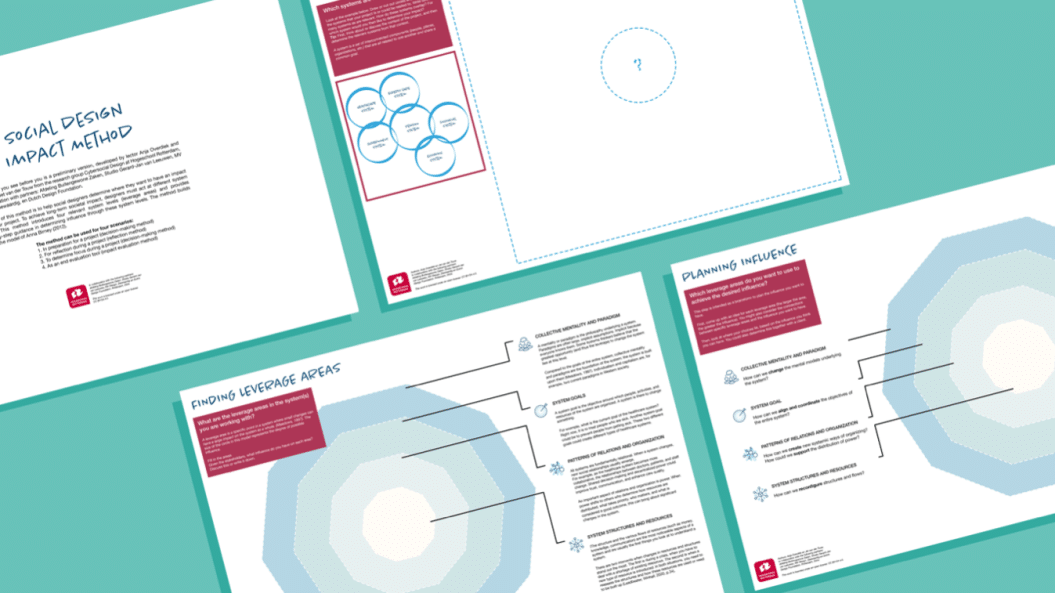On April 13, 2026, ESC is organizing a practice-oriented training on the Social Design Impact Method. This training is intended for (creative) professionals who want to determine where their project should have influence in order to create long-term effects in complex societal contexts. The training is part of ‘ESCuela,’ our program line on education and professionalization, and will be led by Dr. Anja Overdiek (HR, HHS).
Social designers, researchers, and educators are increasingly confronted with long-term challenges and complex societal systems such as healthcare or education. To create impact and work strategically, they are developing new approaches and methods. This begins with a clear understanding of what ‘impact’ actually means and how social design can contribute to it.
Focus of the training
To collaborate effectively — both between designers/educators and with organizations that can benefit from social design — a shared language is essential. But how do you have a conversation about long-term goals in ‘impact language’? And where does a system actually begin or end?
The Social Design Impact Method was developed together with social designers and supports them in determining where they want to take influence with their project in order to contribute to long-term impact. Societal impact in the long run requires working across multiple system levels. The method introduces four relevant system levels (so-called leverage areas) and provides step-by-step guidance on identifying influence through these levels. It is based on a model by Anna Birney (2012) and the work of Donella Meadows.
A leverage area is a specific point in a system where small changes can generate a large impact on the system as a whole. (Meadows, 1997).
What you will learn:
-
Recognize what kind of system a project can be aimed at;
-
Distinguish between different system areas where leverage points exist;
-
Determine which system area(s) to focus on;
-
Develop ideas for social design activities within those areas.
The method was developed by researchers from the Cybersocial Design research group (Rotterdam University of Applied Sciences) and the HEMD research group (Utrecht University of Applied Sciences), and is applied in both education and practice. After this training, you will be able to effectively use this method in your own practice.
Practical information:
Date: 13 April, 2026
Location: Rotterdam University of Applied Sciences
Time: 9:00 AM – 5:00 PM. Coffee breaks and lunch included.
Fee: €600 (ESC practice partners may attend one ESCuela training free of charge.)
